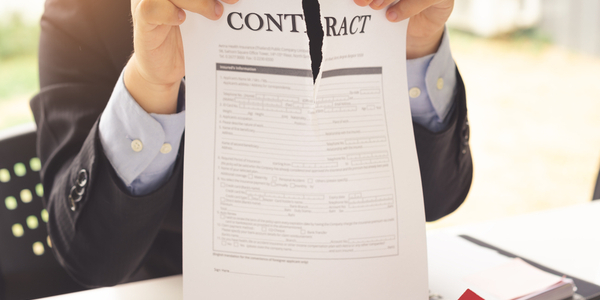
There’s no doubt about it, the COVID-19 pandemic is injecting an unpresented amount of uncertainty into the economy. Large, multinational companies are of course suffering from the pandemic, but so are small- and mid-sized businesses as well.
In fact, the toll of a recessed economy is arguably greater for smaller businesses. Not only do small businesses tend to be less diversified, their profit margins—especially for those that are relatively new—can be razor thin. Added to this, it’s uncommon for a small business to have a team of legal professionals on retainer. Thus during such uncertain and turbulent times, these owners don’t have a professional to answer their time-sensitive legal questions.
For example, with the U.S. economy largely at a stand-still, are businesses still required to fulfill their obligatory contracts? From a practical standpoint, the question is somewhat irrational; how can an owner satisfy an agreement with a sizeable chunk of the economy either shut down or moving at half-speed? Nonetheless, a signed contract is indeed a legally-binding document and both parties are expected and required to perform.
This is precisely where force majeure clauses come into play. Force majeure is French for “superior force”, meaning that in the instance of a “superior force”, a party may be legally relieved from their contractual obligation. Although this may seem straight forward, the exact interpretation of what constitutes as a “superior force” is a frequent point of contention that can ultimately result in lengthy, expensive legal disputes.
What is Force Majeure?
The concept of force majeure is relatively simple: in the event of something extraordinary (and beyond the control of the involved parties) all parties may be freed from their liability and contractual obligation. In practice, however, what often happens is one party tries to invoke force majeure while the other disputes the claim. This often comes down to a contentious interpretation of what is considered an “extraordinary event”.
Characterizing or defining a “force majeure event” is tricky, as the point of the clause is to protect individuals when it comes to unpredictable, unprecedented, or unavoidable chance occurrences. Therefore, its use is context-specific and constantly redefined. Historically, qualifying force majeure events have included:
- Acts of War or Terrorism
- Labor Disputes or Strikes
- Epidemics or Plagues
- Natural Disasters (more commonly referred to as Acts of God)
- Civil Unrest
- Acts of Government
Importantly, a well-written contract explicitly states which of these situations will invoke force majeure clauses. Other contracts will make a distinction between Acts of God (hurricanes, floods, tornados, earthquakes, etc.) and non-natural extraordinary events, usually including Acts of God as qualifying events but excluding the others.
Unfortunately however, most contracts lack detail when it comes to these provisions. For instance, some agreements make isolated references to force majeure without any clear-cut definitions or guidelines as to what constitutes as a qualifying event. These standalone references are incredibly counter-productive, as they do little more than instill additional uncertainty into an already-ambiguous situation.
Force Majeure and COVID-19
Although nobody really plans for a pandemic, well-written business agreements tend to reference disease, epidemics, and plagues in the context of force majeure clauses. If your contract contains this type of language, it will be far easier to invoke a successful force majeure claim (although it will still require other criteria be met).
Conversely, if your agreement only makes broad, catch-all references to force majeure or “Acts of God” (or perhaps, doesn’t contain any language at all on extraordinary events), you should consult an experienced attorney. A successful force majeure claim certainly isn’t impossible in these situations, but it is undoubtedly more difficult.
Historically, courts tend to interpret force majeure clauses narrowly, meaning that broad or ill-defined language typically won’t suffice. However, it’s also worth noting that the COVID-19 pandemic isn’t entirely comparable to past force majeure disputes. For one, the economic stress from COVID-19 is seemingly ubiquitous. With so many industries affected, courts may be less inclined to take a hard stance on small- and mid-sized business owners for failure to perform. Nonetheless, affected parties (or their council) will have to prove that their inability to preform:
1. was directly or indirectly caused by the force majeure event,
2. was unequivocally outside of their control, and
3. could not be mitigated or prevented (ie. reasonable steps were taken to avoid the event and/or its consequences)
The bottom line: the more specific your force majeure provisions, the better. Agreements that explicitly mention pandemics or disease are better positioned to rely on force majeure. However, other phrasing such as “Acts of God”, “Acts of Government”, or “Circumstances beyond reasonable control…” may also indicate COVID-19 as a qualifying force majeure event, but this interpretation will be up to the court’s discretion.
Notably, economic hardship is usually not enough to qualify. In other words, if a business fails to perform due to financial turmoil, a force majeure generally can’t help. However, this may be complicated if the economic hardship is a direct result of the COVID-19 pandemic or a governmental action caused by COVID-19. In such uncertain times, it’s always wise to consult a knowledgeable attorney.
 May 05, 2020
May 05, 2020

